
There are reasons for doubt. They start with technical matters: the effect of the changes on revenue and on saving and investment. Broader questions also arise. Is Biden’s approach to tax reform coherent? And can it be squared with one of America’s great strengths: its regard for profit-driven innovation and its willingness to reward and applaud success?
The president’s most arresting idea combines two changes to the taxation of investment income. At the moment the top rate of the capital-gains tax is 23.8%. Biden wants to almost double it, to 43.4%. He also proposes to abolish the so-called stepped-up basis at death. This longstanding treatment erases unrealized capital gains for tax purposes when the owner dies; assets pass to the heirs with their acquisition value (or “basis”) stepped up to current prices.
The two components are linked. Capital-gains tax is paid only when assets are sold, and owners can usually choose when that is. The higher the rate, the bigger the incentive to delay the sale and defer the tax. Stepped-up basis goes one better, eventually canceling any taxes owed. If stepped-up basis were left in place, the rate that maximizes proceeds from the tax would likely be less than 43.4%, because a rate this high gives too big an incentive to defer and avoid the tax. Scorers at Congress’s Joint Committee on Taxation have estimated this revenue-maximizing rate to be as low as 28%. Abolishing stepped-up basis would push it higher, but it’s unclear by how much.
This story is from the June - July 2021 edition of Bloomberg Markets.
Start your 7-day Magzter GOLD free trial to access thousands of curated premium stories, and 9,000+ magazines and newspapers.
Already a subscriber ? Sign In
This story is from the June - July 2021 edition of Bloomberg Markets.
Start your 7-day Magzter GOLD free trial to access thousands of curated premium stories, and 9,000+ magazines and newspapers.
Already a subscriber? Sign In
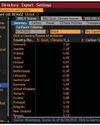
See Which Countries Are Falling Behind On Climate Change
Under the Paris Agreement, 190 countries and the European Union pledged to take steps to hold the global temperature rise to less than 2C (3.6F) from preindustrial levels—and preferably 1.5C.
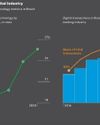
Billionaires Vie for the Future of Brazilian Finance
An escalating battle between two billionaires is upending the financial community in São Paulo, Latin America’s wealthiest city.

Ford Foundation's Darren Walker: ‘We Have to Get Uncomfortable'
DARREN WALKER, 62, disrupted his Wall Street life more than 25 years ago when he left what is now UBS Group AG to volunteer at a school and eventually pursue a career in community development and philanthropy. Since 2013 he’s been at the pinnacle of the philanthropic world as president of the Ford Foundation, created by the family of automaker Henry Ford during the Great Depression to advance human welfare.

Fueling the Ener Transition
I MAY BE BIASED, but some of the most important research and data on the Bloomberg terminal lies in one of its lesser-known functions: {BNEF }

Dig Into Analysts' Estimates for Disruptive Companies
THE PANDEMIC ERA generated a whole wave of disruptive companies as it accelerated the introduction of new products and services in areas including artificial intelligence, digitization, electronic payments, online meeting platforms, and virtual currencies.
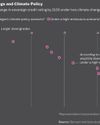
Climate Risks Come for Sovereign Credit
FOR YEARS climate scientists have warned about the ferocious wildfires and hurricanes that are now overwhelming many communities. Today alarms are ringing about a related financial danger: risks lurking within government bonds, the biggest part of the global debt market.

Responsible-Investing Pioneer Lydenberg Says ESG Needs An Upgrade
STEVE LYDENBERG’S passion for social change was inspired by anti-Vietnam War demonstrations, consumer boycotts, and the movement to divest from apartheid South Africa. But he didn’t take to the streets. Instead, Lydenberg turned to the world of finance to help catalyze societal change.

Engine No. 1's Grancio: ‘People Will Appreciate an Economic Argument'
ENGINE NO. 1 sent shock waves across corporate America in May when the fledgling investment firm won a boardroom battle with Exxon Mobil Corp., securing three seats on the oil and gas giant’s board after purchasing only about $40 million of its stock.
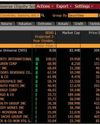
Find Out Which Companies May Ramp Up Payouts After Covid
AS THE PANDEMIC DISRUPTED business last year, many companies cut or suspended dividends. Which will boost their payouts when economies pick up again?
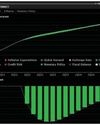
Get Into the Minds of Central Bankers as They Navigate Shocks
HAVE YOU EVER WONDERED how central bankers forecast the impact of shocks on the economy?